Policy Briefs

The global health policy environment advocates for service integration at the point of health care delivery in order to provide affordable, accessible, and equitable and quality community-based care. “Service integration” is the packaging of services in order to deliver them together as a comprehensive whole for the purpose of making them more accessible and more responsive to the needs of individuals, families and communities.
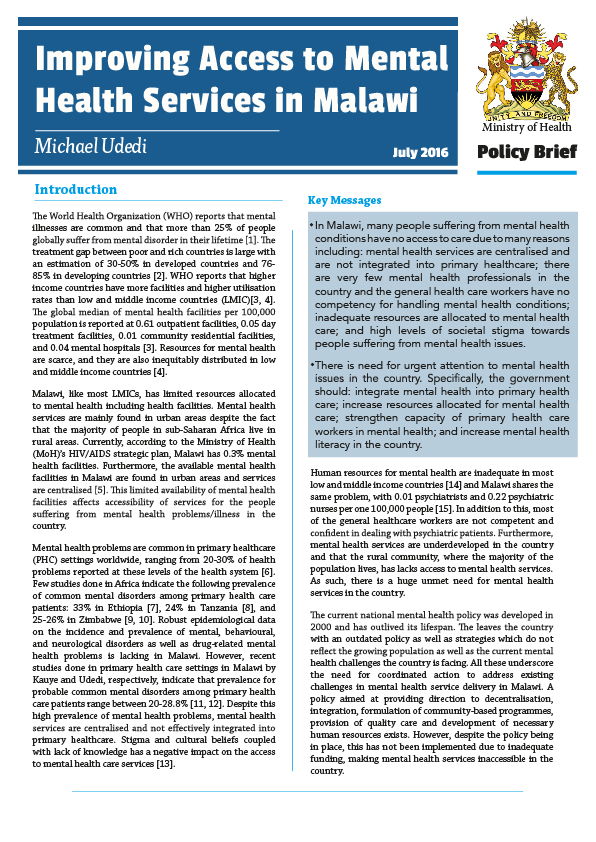
The World Health Organization reports that mental illnesses are common and that more than 25 percent of people suffer from mental disorder in their lifetime. The treatment gap between poor and rich countries is large with an estimation of 30-50 percent in developed countries and 76-85 percent in developing countries. The WHO reports that higher income countries have more facilities and higher utilisation rates than low and middle-income countries. Resources for mental health are scarce, and they are also inequitably distributed in low and middle-income countries. Malawi, like most LMICs, has limited resources for mental health facilities and services.
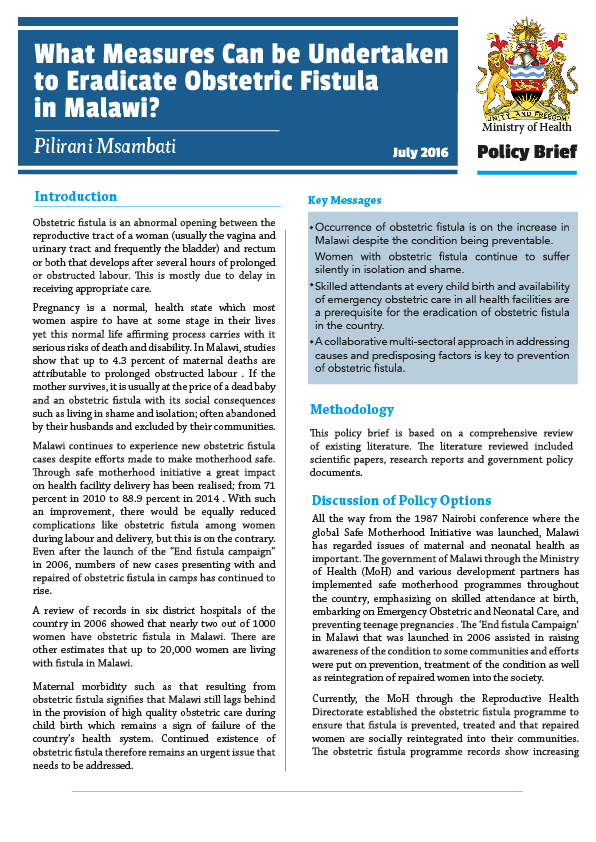
Obstetric fistula is an abnormal opening between the reproductive tract of a woman (usually the vagina and urinary tract and frequently the bladder) and rectum or both that develops after several hours of prolonged or obstructed labour. This is mostly due to delay in receiving appropriate care. This policy brief provides an analysis of the current prevalence of obstetric fistula in Malawi noting that incidents have been on the increase.
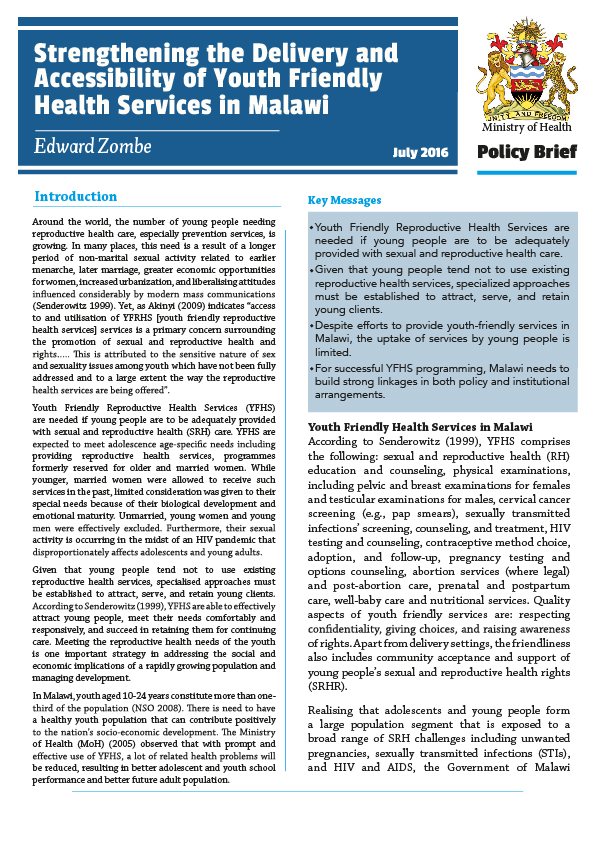
Around the world, the number of young people needing reproductive health care, especially prevention services, is growing. In many places, this need is a result of a longer period of non-marital sexual activity, related to earlier menarche, later marriage, and greater economic opportunities for women, increased urbanisation, and liberalising attitudes influenced considerably by modern mass communications. Yet, as some literature has indicated, the “access to and utilisation of Youth Friendly Health Services (YFRHS) services is a primary concern surrounding the promotion of sexual and reproductive health and rights…”.
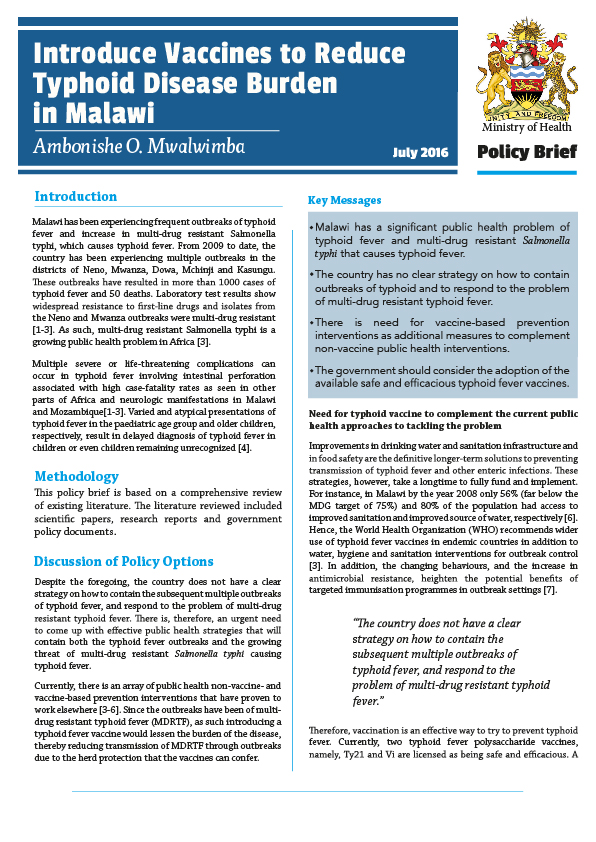
Malawi has a significant public health problem of typhoid fever and multi-drug resistant Salmonella typhi that causes typhoid fever. The country has no clear strategy on how to contain outbreaks of typhoid and to respond to the problem of multi-drug resistant typhoid fever. There is need for vaccine-based prevention interventions as additional measures to complement non-vaccine public health interventions. The government should consider the adoption of the available safe and efficacious typhoid fever vaccines.
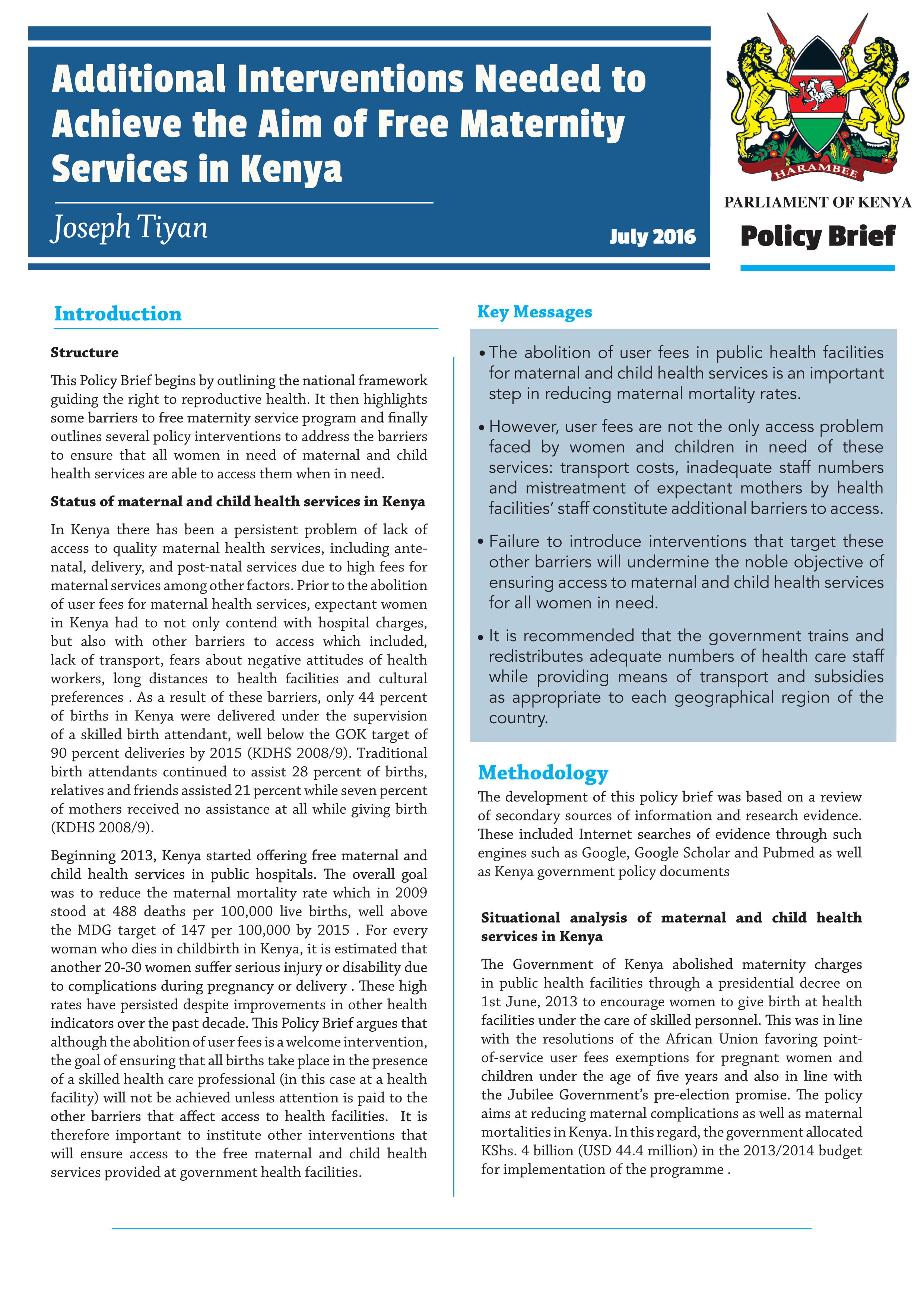
This Policy Brief begins by outlining the national framework guiding the right to reproductive health. It then highlights some barriers to free maternity service program and finally outlines several policy interventions to address the barriers to ensure that all women in need of maternal and child health services are able to access them when in need.
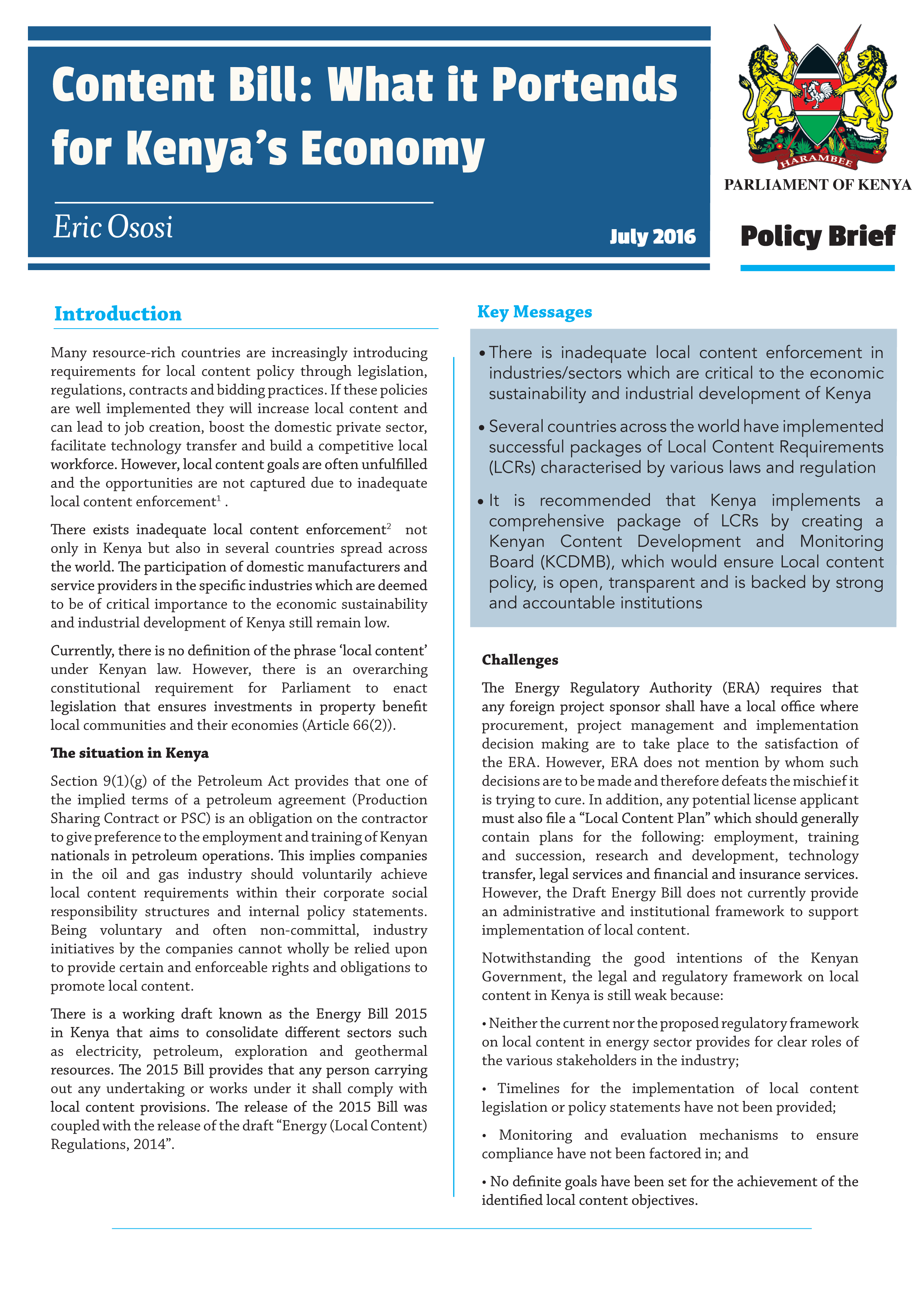
Many resource-rich countries are increasingly introducing requirements for local content policy through legislation, regulations, contracts and bidding practices. If these policies are well implemented they will increase local content and can lead to job creation, boost the domestic private sector, facilitate technology transfer and build a competitive local workforce. However, local content goals are often unfulfilled and the opportunities are not captured due to inadequate local content enforcement.
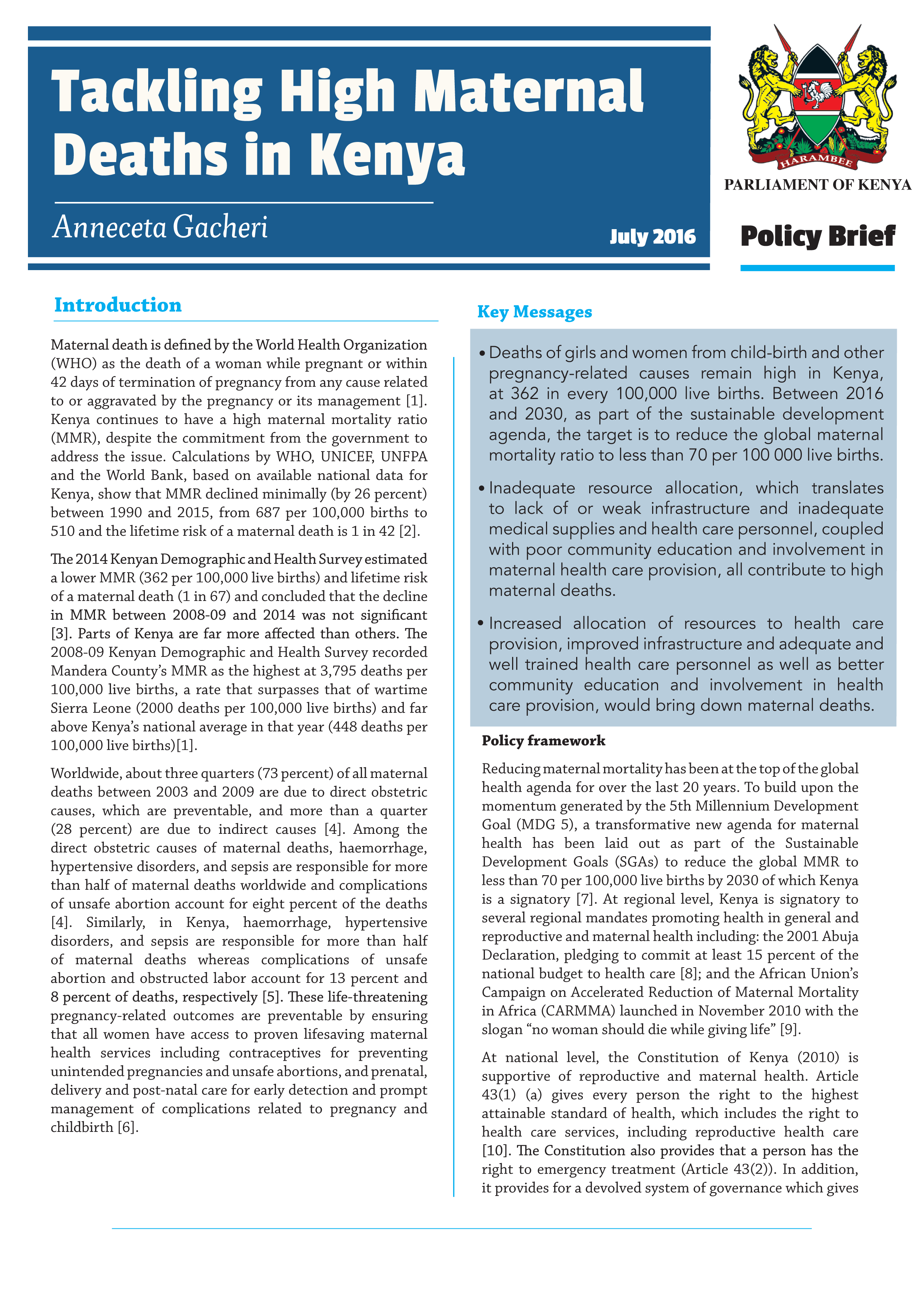
Maternal death is defined by the World Health Organization (WHO) as the death of a woman while pregnant or within 42 days of termination of pregnancy from any cause related to or aggravated by the pregnancy or its management. Kenya continues to have a high maternal mortality ratio (MMR), despite the commitment from the government to address the issue. Calculations by WHO, UNICEF, UNFPA and the World Bank, based on available national data for Kenya, show that MMR declined minimally (by 26 percent) between 1990 and 2015, from 687 per 100,000 births to 510 and the lifetime risk of maternal death is 1 in 42.
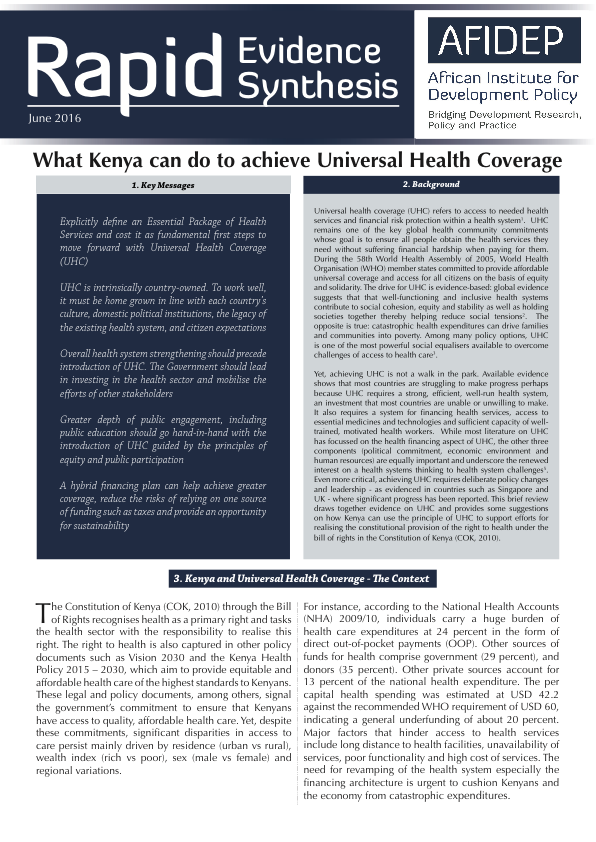
Universal health coverage (UHC) refers to access to needed health services and financial risk protection within a health system. UHC remains one of the key global health community commitments whose goal is to ensure all people obtain the health services they need without suffering financial hardship when paying for them.
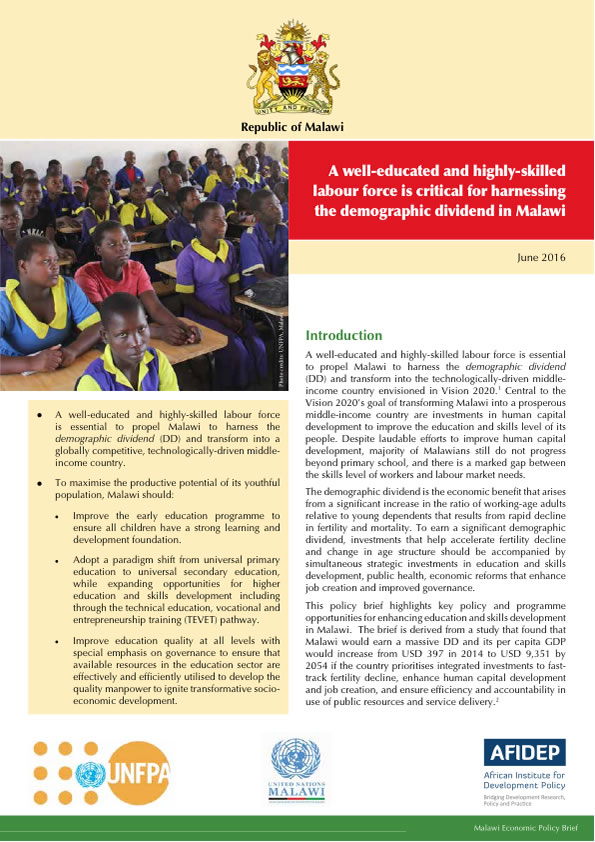
A well-educated and highly-skilled labour force is essential to propel Malawi to harness the demographic dividend and transform into the technologically-driven middle-income country envisioned in Vision 2020.
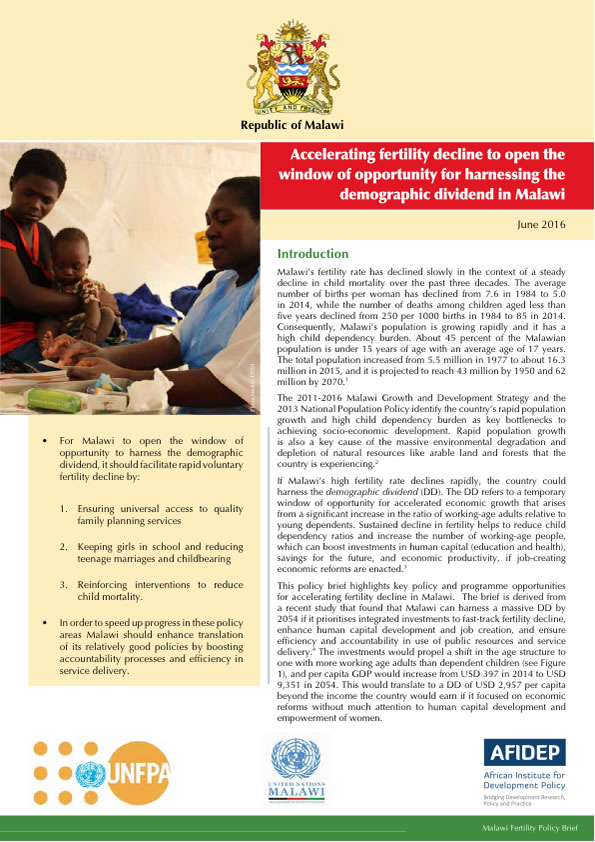
Malawi’s fertility rate has declined slowly in the context of a steady decline in child mortality over the past three decades. The average number of births per woman has declined from 7.6 in 1984 to 5.0 in 2014, while the number of deaths among children aged less than five years declined from 250 per 1000 births in 1984 to 85 in 2014.
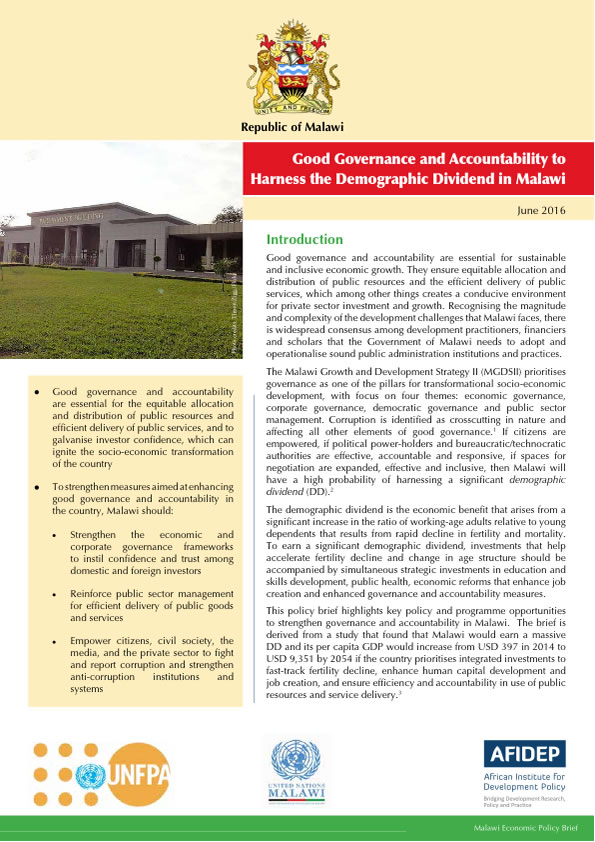
Good governance and accountability are essential for sustainable and inclusive economic growth. They ensure equitable allocation and distribution of public resources and the efficient delivery of public services, which among other things creates a conducive environment for private sector investment and growth.

